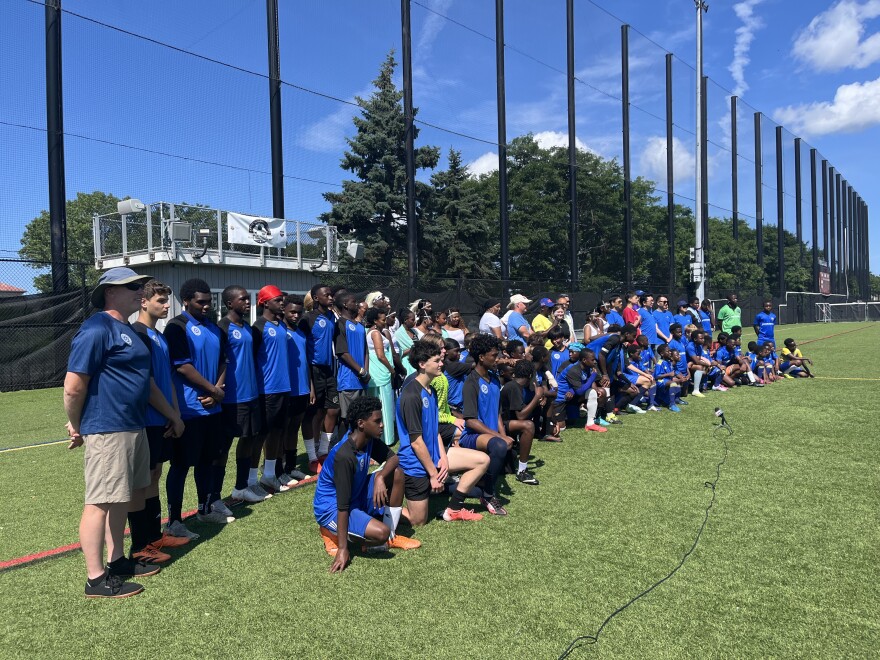Some of Gabriel Shalamba’s best memories of growing up in the Democratic Republic of the Congo came from playing soccer with his friends.
After moving to Buffalo, Shalamba wanted his kids to have the same experience, but there was a problem: signing them up for a soccer league was simply too expensive.
So Shalamba co-founded Buffalo Maendeleo Soccer Club, a group for refugee and disadvantaged children who want to play soccer. The club grew and worked with the Buffalo-based non-profit organization Bridges from Borders to create the OneWorld Soccer Tournament of Western New York, an event designed to bring boys of various backgrounds together.
The groups kicked off the second annual tournament with an opening ceremony at Dobson Field on Buffalo’s West Side on Saturday. About 75 kids are participating in the weekend-long tournament.
“Soccer, football – it’s the universal sport. Everyone knows how to play soccer,” Samantha Dalka, a program coordinator with Bridges from Borders, said. “You don’t have to speak the same language. You don’t have to have the same culture. Everyone can understand each other through soccer… The whole idea is for the kids to have fun and meet each other and open up and learn different cultures.”
The tournament was created with immigrants in mind, but it’s open to all youth. Registration is free, and the Maendeleo Soccer Club provides players with free transportation to games, making the tournament accessible to families without spare cash or reliable transportation.
“We give chance to all low-income [kids] and immigrants and refugees and people from around the world,” Shalamba said during the first game of this year’s tournament. “It’s not only refugees, even Americans – African Americans or white — everybody is involved to play the game. You can see everybody here — they want to just speak one language.”
Organizers say they plan to expand the tournament in the future and add a girls league. Federal funding cuts could make that expansion difficult, but Dalka said Bridges from Borders is planning ahead.
“Everyone is kind of concerned about the funding and, obviously, the attitude towards immigrants. That’s always kind of in the back of our mind when we’re running different events,” Dalka said. “But really we’re just kind of finding other resources, other ways to find funding, asking our supporters, really just trying to find other avenues of funding so we can make sure we’re here next year and the year to come and many years in the future.”


